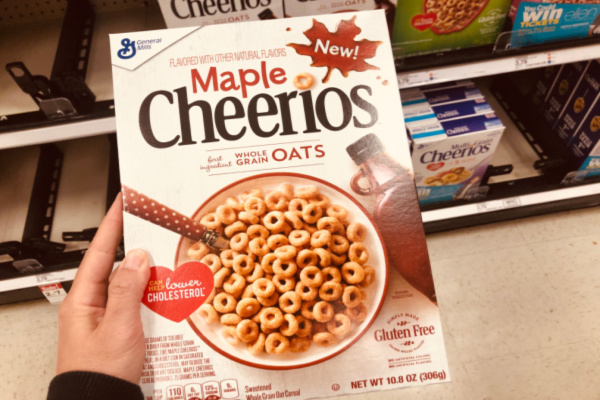Four out of five Americans likely have a lesser-known pesticide in their bodies thanks to the consumption of certain foods, according to a new study.
In February, a study published in the Journal of Exposure Science & Environmental Epidemiology found that 80% of tested Americans had the chemical chlormequat in their systems, a plant regulating agent that is currently not approved for use on edible crops in the U.S.
However, as USA Today reports, imported foods treated with chlormequat are allowed to enter the country. According to a brief published alongside the study by the advocacy organization Environmental Working Group (EWG), the findings “ring alarm bells,” as the chemical is thought to be harmful, could cause infertility, and was found in common oat and wheat-based products, including Cheerios and Quaker Oats.
The study comes amid an increase in infertility in the United States, with about 12% to 15% of couples unable to conceive after one year of trying, according to the National Institutes of Health. As a result, the reports sent off a wave of alarms across the country. The headlines seemingly said it all: “80% of Americans test positive for a chemical found in Cheerios.” But as we’ve all learned in this age of social media, many headlines are optimized for clicks, not accuracy.
Too often, there is a gap between what is reported and what is scientifically accurate, so it’s important to separate facts from fiction. Here’s what you need to know before adjusting what you eat.
The February headlines suggested alarming amounts of the pesticide chlormequat in Cheerios and other popular cereals. Experts say it’s good to be mindful of this, but not to fixate on it as we don’t yet know what it may mean for human health.
“I think that it was the first study in the right direction, but it’s too early to tell,” Dr. Tomer Singer, chief of reproductive endocrinology and infertility at Northwell Health, tells CBS News. “And if we should be concerned? I think it warrants definitely more extensive and prospective study, which unfortunately take years to obtain.” His advice? “I think that the main thing that we need to advise our patient who are trying to conceive is to have a healthy, balanced diet, eating fruits and vegetables as we usually recommend.”
According to Dr. Andrea Love of Unbiased Science who broke down the practical findings, the threat is not as it first appears. “You’d had to eat over 600 boxes of cereal at the ‘highest detected level’ of 291 parts per BILLION in a single sitting,” says Dr. Love. “Chlormequat is rapidly excreted in urine within hours. So levels in urine just mean we peed it out. But the levels in urine? They were even 10-fold lower than the levels detected in cereals.”
So, unless you’re sitting down for the long haul and consuming a whopping 600 boxes of Cheerios daily, you’re not taking in an amount deemed dangerous. And because your body rapidly flushes it, build-up over time is also less of a concern.
Dr. Asima Ahmad, chief medical officer and co-founder of fertility care platform Carrot Fertility says you could always opt for organic oats instead. “Similar to how I counsel my own patients, I recommend trying to eat organic and freshly prepared foods as much as possible,” Ahmad says.
For their part, the companies behind Cheerios and Quaker Oats say they stand by the safety and quality of their products. “All our products adhere to all regulatory requirements,” a spokesperson for General Mills, the maker of Cheerios, told CBS News in a statement. “Food safety is always our top priority at General Mills, and we take care to ensure our food is prepared and packaged in the safest way possible.”
Now, some might decide that any level of chemicals is too much. And that’s fair. Your body is your body. However, it’s important to realize that minor levels of chemicals can be found in almost any food, including fresh fruits and vegetables. So, while you are free to do your own research and make your own health decisions, as alarming as they might have initially appeared, these findings do not suggest that eating Cheerios poses a health risk.
Singer explains diet, lifestyle and environment all play a role in fertility. But instead of focusing on oats specifically, he says it’s better to keep a big picture of health in mind. “We know that fruits and vegetables and balanced diet — what we call the Mediterranean diet — is healthy for fertility,” Singer notes, noting that balancing carbohydrates, fat and sugars, taking prenatal vitamins and being physical active are all part of supporting your fertility goals.
—
Photo Credit: melissamn / Shutterstock.com
